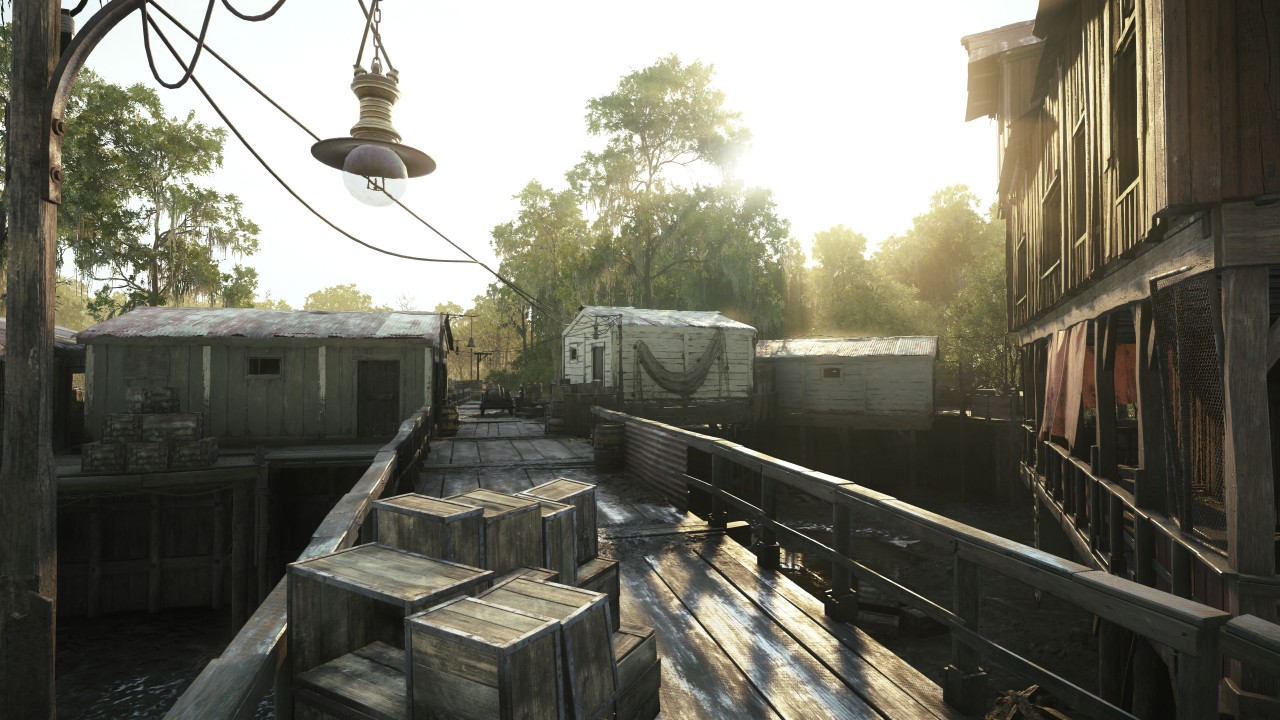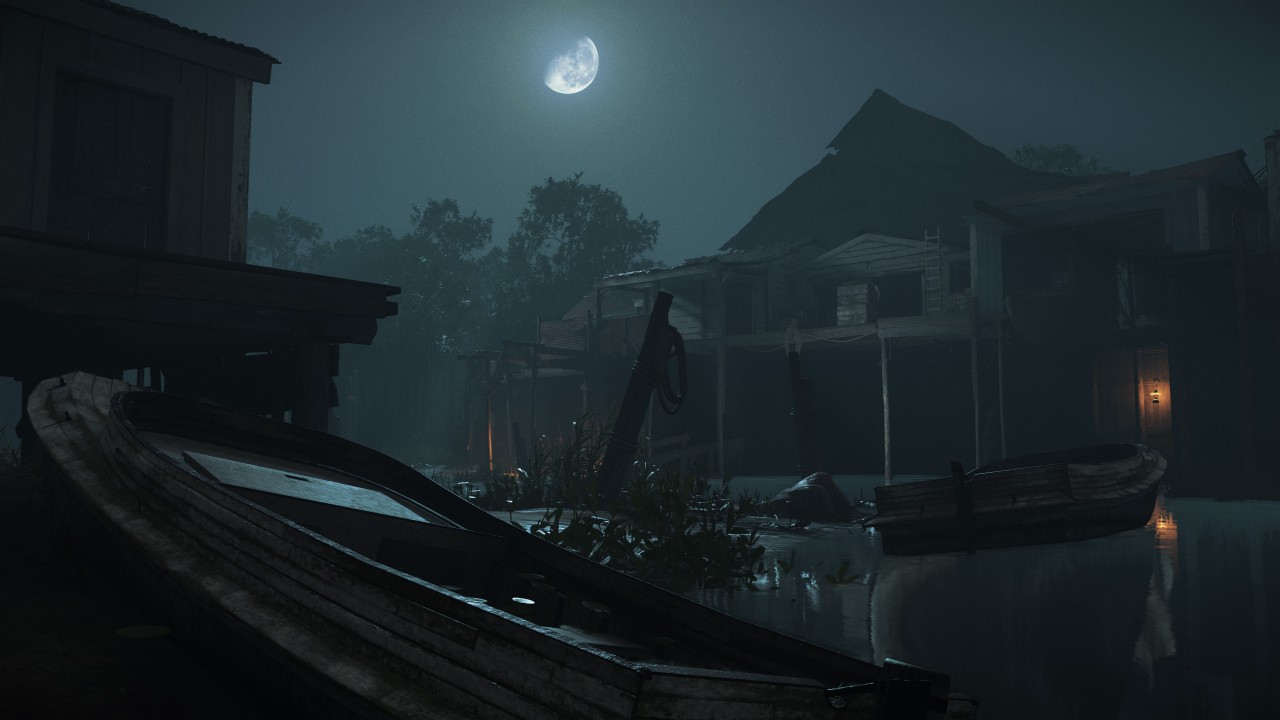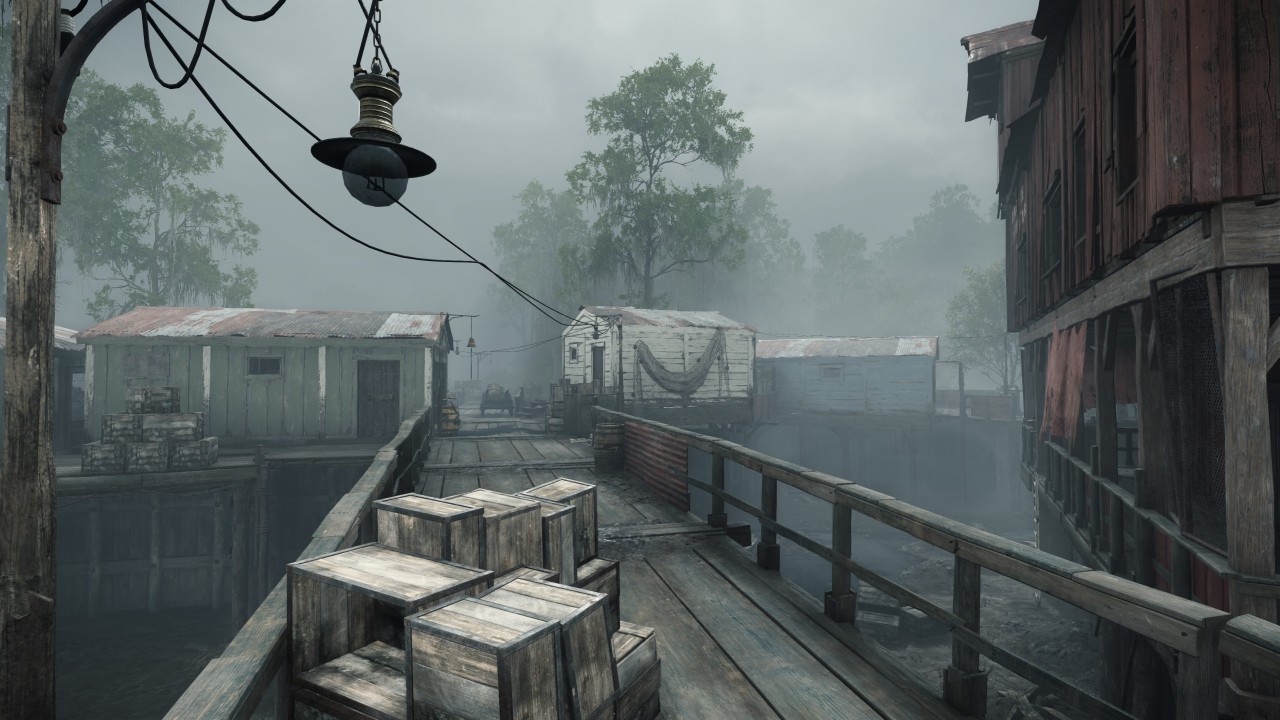Although Port Reeker is the largest settlement for miles around, little is recorded of it. To make matters worse, what accounts we do have clash drastically with all officially recorded statistics or numbers. Comparisons have been made to Manila Village and Saint-Malo elsewhere in South Louisiana. These are mostly exaggerations, Port Reeker was not isolated to the same degree, though they do share foundational legends: Filipino pirates who overthrew their Spanish masters and settled in the swamps.
Whether or not this is true, by the mid-nineteenth century, there was a significant Creole population living in the town, mentioned by numerous traders. While the town was not exactly thriving, there was indeed a number capable of making a living fishing and selling their goods in New Orleans.

There are various stories of how the place came to be named “Reeker." Some suggest it was named for James Reeker, who founded the current town. However, no official records exist of such a man. Others point to a local legend. In 1795, a bloated whale carcass washed up at the port. As it rotted, it created a tremendous and overpowering stench. Many were at a loss as to how it turned up there. Worryingly, throughout the summer, more carcasses drifted ashore. The smell was said to have hung throughout the winter.

During the Civil War, trade to and fro Port Reeker all but ceased as they purposely isolated themselves from the broader conflict. It was following the war, during Reconstruction, that the town began to thrive. The mouth of the Mississippi had a shallow draught and was often unnavigable for ships. Sometimes, without a better option, cargo came through Port Reeker instead.
This brought the port to the attention of Henrik Graf. A businessman, Graf was eager to take any opportunity he could. In 1877, James Buchanan Eads cleared the Mississippi, and Port Reeker was faced with a crisis. Graf bought the goods warehouses and constructed his own processing plant. The logic was sound as labor was cheap out in the bayou, especially as those living there had little else to turn to.

Graf preferred to remain in the background, an orchestrator
rather than an empire builder. For all his acquisitions, he preferred to retain
the local and familiar branding. To some, this gave cause for suspicion: why
would he avoid fronting his own ventures? His response was always the same, to
preserve and honor the local character and customs.
Business boomed until the Panic of 1893. Graf, a keen financial speculator, lost thousands. It was said to have deeply affected his character. He imposed harsher and harsher conditions on his workforce, causing many to leave Port Reeker. They brought stories to New Orleans of a sad and demented man who would stop at nothing to regain the wealth he lost…